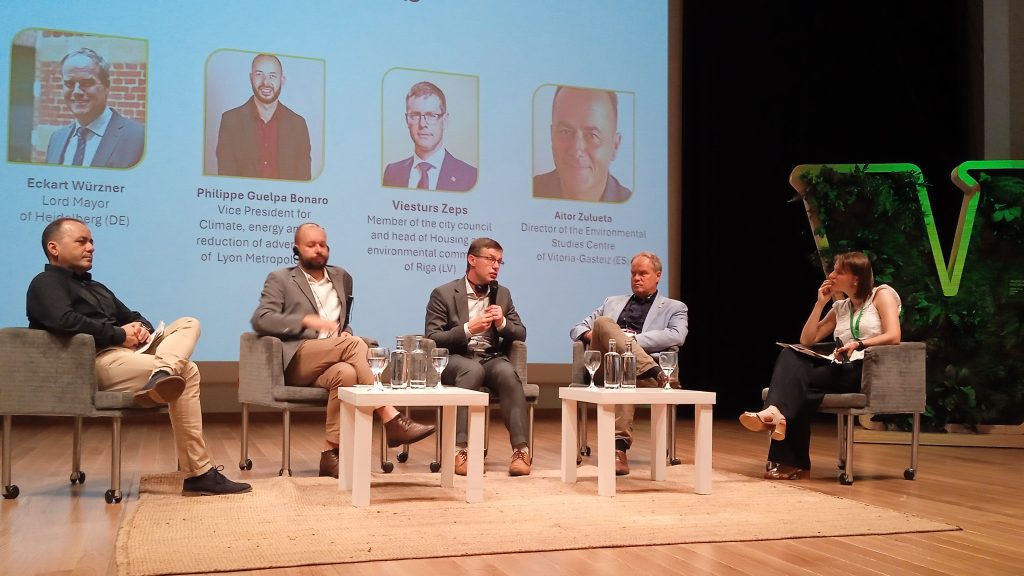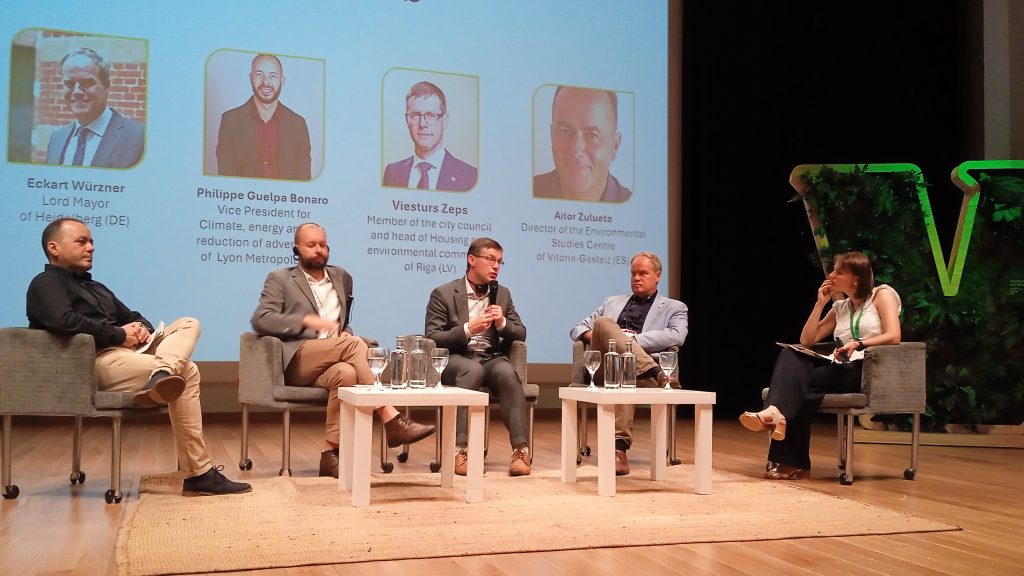We are energy addicts who need rehab

Planet Earth is begging us to respect its boundaries. Some cities are already running out of water, even in wintertime. Energy prices have soared. Urban sprawl is increasing while cities have plenty of vacant buildings. There are relevant supply shortages. The huge amount of food wasted is a real shame.
It’s clear that we consume much more than we need. The social, economic, and climate crises are all interlinked. Holistic, even creative, solutions that can tackle more than one problem at a time are urgently needed. Sufficiency is the key, as Energy Cities has been highlighting for a while now.
Resource-wise cities: Rethinking our needs
As part of the last Energy Cities’ Annual Conference in Valencia in June, local authorities and energy agencies had several opportunities to exchange and share best practices and concerns. One of these was the interesting panel discussion Resource-wise cities: Rethinking our needs, which brought together four different European cities.
Heidelberg (Germany), Lyon (France), Riga (Latvia), and Vitoria-Gasteiz (Spain) have in common more than we might think. During the discussion, they showcased the concrete sufficiency actions they are implementing to use resources more wisely and engage citizens while providing all the services needed to improve everyone’s well-being.

Why do we use so much energy?
“We are energy addicts who need rehab” – Philippe Guelpa Bonaro, Vice President of Lyon Metropole
If on the one hand –Aitor Zulueta, Director of the Environmental Studies Centre of Vitoria-Gasteiz City Council, explained – we can expect the energy demand to keep rising, especially due to the electrification of industry and the transport sector, on the other hand, we need to tackle resources scarcity, increase the power generated by renewables, and reduce the general demand. Renovating old buildings and adopting more responsible behavior are essential steps. In short, we need energy efficiency and sufficiency.
For Viesturs Zeps, Head of the Housing and Environmental Committee of the city council of Riga, the energy crisis is an opportunity to act fast. “We need to reduce the energy consumed for public buildings” – he stated. The money saved thanks to better energy management can be used to create incentives, such as solar solutions for social housing. “We aim to be a model for citizens by moving to electric and hydrogen-powered buses and stations”.
“We are lowering temperatures in public buildings, widening the pedestrian spaces, and creating more safe outdoor areas. This will help us detox from energy addiction” – said Bonaro.
He also stressed the importance of being coherent. Lyon Métropole is committed to reducing advertising that encourages overconsumption and promotes fossil fuels-related products or services.
Improving everyone’s well-being through sustainability
Bonaro also shared his concerns about water shortages. Despite Lyon Métropole being located between two rivers, water scarcity is a concrete issue. “We expect a 50% reduction in water supply in a few years” – he said. The metropolitan area is getting ready to handle this issue. Indeed, it strives to reduce water consumption with sufficient measures. From 2025 onward, water pricing will become progressive according to consumption levels to distinguish between vital, domestic, and leisure needs. Of course, water scarcity affects the agriculture as well. The metropolitan area is engaging with farmers to encourage a shift from the cultivation of maize to less water-intensive cereals.
Zulueta shared the experience of the Victoria Green Belt, a long-standing project carried out by different local governments from diverse political backgrounds. The goal is to recover and regenerate outlying areas of Vitoria-Gasteiz both from environmental and social viewpoints. The Green Belt consists of a group of periurban parks of high ecological and landscape value, strategically linked through eco-recreational corridors. This project is a great example of how citizens can benefit from giving nature its space back thanks to the many opportunities it offers.
Mayors as role models
“Good solutions will take years to be implemented, so we need sufficiency measures now” – Eckart Würzner, Mayor of Heidelberg
Of course, sustainable mobility is another important step in the green transition. All these four cities encourage people to bike or walk rather than drive, thus promoting a safer and less polluted environment and a healthier lifestyle.
Eckart Würzner, Mayor of Heidelberg, urged all governmental levels to take action now, as we are running out of time. He called for a collective mindset shift. Being directly in touch with their citizens, mayors should serve as role models. “We should leave the car in the garage and bike, as well as install solar panels on the rooftops of our public buildings and houses” concluded Würzner.
Involve us in the policy-making process!
Finally, local authorities call for less bureaucracy and more real commitment from both national governments and the EU institutions. The lack of funds, support, and skilled staff is challenging the fulfillment of the green transition. Moreover, as they are at the forefront of the implementation, cities need to be involved in multi-level dialogues and sit at the table of the policy-making process.
If adequately supported, EU cities can be a role model for the whole world. For example, we can start with spreading the 15-minute city model.
The post We are energy addicts who need rehab appeared first on Energy Cities.
Fuente: ENERGY CITIES
Enlace a la noticia: We are energy addicts who need rehab

